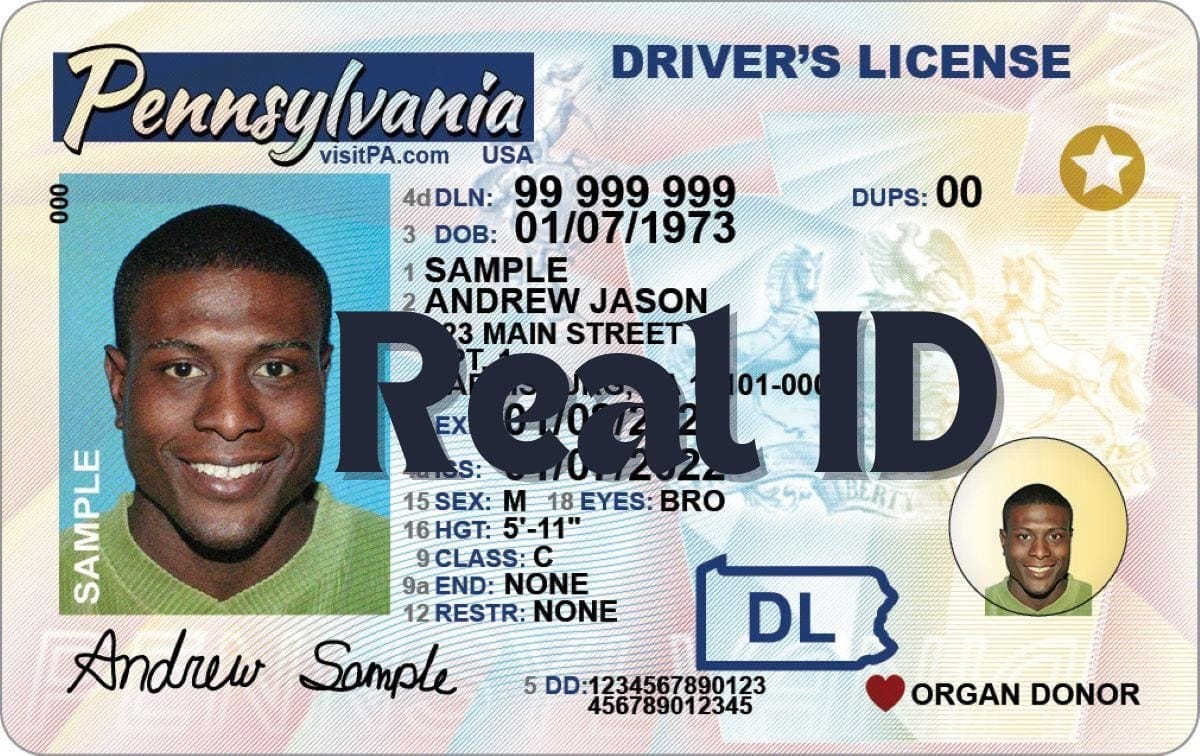Did you know nearly 100 million Americans still don’t have a Real ID or might not know what is Real ID? This type of ID means your driver’s license or ID meets specific federal requirements. It was created to fight identity fraud and make IDs more secure. As the deadline for Real ID enforcement gets closer, everyone needs to learn about it.
The Real ID Act came after the 9/11 attacks, based on a recommendation. It set national standards for state-issued IDs, like driver’s licenses. It requires states to have higher security when making and issuing IDs. This ensures IDs are accepted at airports and federal buildings. The goal is to make the process for getting a driver’s license the same everywhere.

Key Takeaways
- Congress passed the Real ID Act in 2005 to set minimum security standards for state-issued driver’s licenses and identification cards.
- Starting May 7, 2025, real ID-compliant licenses or state identification cards will be required for domestic air travel and access to certain federal facilities.
- The application process and required documentation for obtaining a Real ID vary by state but generally include proving identity, a Social Security number, and residency.
- All 50 U.S. states and the District of Columbia now comply with Real ID security standards and are issuing Real ID-compliant driver’s licenses and identification cards.
- The primary benefit of Real ID is enhanced security and fraud prevention, creating a more secure verification standard for citizens.
Understanding the Real ID Act
The Real ID Act became law in 2005. Setting a common standard for secure IDs like driver’s licenses was a big move. The Department of Homeland Security manages this act to fight identity theft and ensure people know who they are.
Federal Mandate for Secure Identification
Every state and the District of Columbia now follow the Real ID rules. They issue driver’s licenses and IDs that meet these stricter standards, and these rules prevent some federal places from accepting IDs that don’t meet the standard.
Enhanced Security Features
The Real ID Act came about after the 9/11 Commission’s urging. They wanted the National Government to control how IDs are issued, like driver’s licenses. This Act brings in tougher security measures to better prove who you are and stop ID theft.
What is Real ID?

Real ID-compliant licenses make traveling easier. They’re TSA-acceptable forms of identification. You’ll see a star in the top corner to know it’s a Real ID. Federal law requires states to meet the same high Real ID security standards. Now, all states give out Real ID-compliant driver’s licenses and IDs.
Real ID-Compliant Driver’s Licenses and IDs
If you have a Real ID-compliant license, getting through airport security is smoother. You’ll find the critical star in the corner. Federal law requires this, ensuring a standard for ID cards across America.
Standardized Issuance Criteria
Federal regulations require states to follow the same rules in issuing driver’s licenses. All 50 states and Washington, D.C., now have Real ID rules. They issue Real ID-compliant driver’s licenses and IDs. So, everywhere you go, they look and work the same.
Real ID Enforcement Deadline
 The real ID deadline for full enforcement of the Real ID is May 7, 2025. For drivers with unexpired licenses, nothing changes. However, every air traveler over 18 will need a Real ID-compliant identification or another TSA-acceptable form for domestic air travel.
The real ID deadline for full enforcement of the Real ID is May 7, 2025. For drivers with unexpired licenses, nothing changes. However, every air traveler over 18 will need a Real ID-compliant identification or another TSA-acceptable form for domestic air travel.
Since May 7, 2025, non-compliant IDs haven’t been okay at TSA security checkpoints.
May 7, 2025, Deadline
The real ID deadline on May 7, 2025, changes what you need to fly. Air travelers over 18 must show a Real ID or another good ID to fly within the U.S. This law started in 2005 to make IDs more secure and reduce fraud.
Acceptable Forms of Identification
Besides a Real ID, you can also use a valid U.S. passport, a U.S. passport card, or a military ID for flying within the U.S. after May 7, 2025. It’s a good idea to check if your state’s ID rules meet Real ID standards for domestic air travel.
Getting a Real ID
You must follow specific state rules and steps to get a real ID. Each state manages its Real ID process. The place that issues driver’s licenses or IDs is usually in charge.
State-Specific Requirements
The steps to get a Real ID change depend on where you live. Each state has its own needs, including what you must show to prove who you are, your Social Security number, and where you live.
Application Process
To apply for a Real ID, you must go to your state’s office and show certain documents, such as your ID, Social Security card, and proof of living there. After you apply, you get a paper ID. Your Real ID will come in the mail in 3–4 weeks.
Required Documentation
You’ll need specific papers, like a birth certificate, passport, and Social Security card to apply for a real ID. You must also prove where you live with a bill or bank statement. Check what your state needs and gather all your papers before you go.

Using Your Real ID
A Real ID’s main benefit is flying and going to some federal places. Starting May 7, 2025, you will need one if you’re over 18 and flying within the U.S. It’s for more security when you travel by plane.
Domestic Air Travel
To fly in the U.S., you must have a Real ID or a TSA-approved ID after May 7, 2025. This makes air travel safer and guards against fake IDs. It’s about keeping us all safe when we fly.
Accessing Federal Facilities
You also need a real ID for notable federal buildings, not just for planes. This increases security and ensures only the right people get in, helping to protect places with important government activities.
Conclusion
The Real ID Act, which started in 2005, set a standard for IDs in the US. It ensures that all states follow the same high-security measures. This helps stop identity theft and makes it easier to check people’s IDs. Now, everyone in the US gets more secure licenses and IDs.
A Real ID is key for flying within the US and entering some federal places after May 7, 2023. Getting one means showing documents that prove who you are, your Social Security number, and where you live. It’s important to know what is real ID, why it is necessary, how to get one, the requirements, and how to use it to move quickly and meet these new rules.
The Real ID Act is helping to make our IDs more secure across the country. This means we can feel safer and more sure about each other’s IDs.
FAQ
What is Real ID Act?
In 2005, Congress passed the Real ID Act. This act sets security standards for driver’s licenses to reduce identity fraud and improve citizen verification.
Why is the Real ID necessary?
It follows a 9/11 Commission recommendation for a federal ID standard. The Real ID Act fights identity fraud. It sets a stronger verification standard for citizens.
How do I get a Real ID?
In each state, getting a Real ID is a bit different. However, you must usually show your ID, a Social Security card, and proof of address. After applying, you get a temporary paper ID. Then, your new Real ID is mailed to you in three to four weeks.
What are the requirements for a Real ID?
The Act requires ID, Social Security, and address proof. All states and D.C. now follow these security steps and issue driver’s licenses and ID cards that meet Real ID standards.
What is Real ID-compliant license or identification card?
A Real ID looks almost the same as a regular license. But it has a star in one corner. Real IDs let you fly within the U.S. and enter federal buildings.
When is Real ID enforcement deadline?
The Real ID must be used by May 7, 2025. After that, you’ll need it for flights or to enter federal buildings. Other acceptable IDs include a passport or military ID for flying in the U.S.
What are the acceptable forms of identification for domestic air travel after the Real ID deadline?
Starting May 7, 2025, you need a Real ID to fly within the U.S. Other options are a passport, military ID, or a TSA-approved form of ID. This is required at security.
Read More:  How is the Housing New Law Helping Homeowners Save in the USA? (2024)
How is the Housing New Law Helping Homeowners Save in the USA? (2024)



